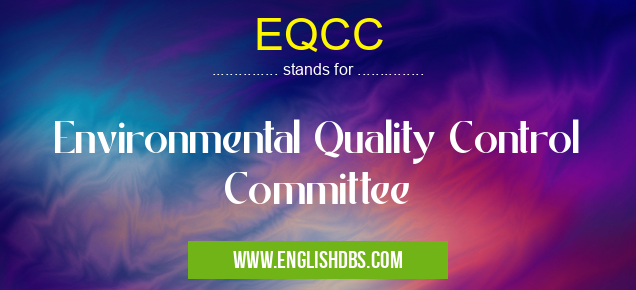What does EQCC mean in COMMITTEES
EQCC stands for Environmental Quality Control Committee. It is a regulatory body responsible for overseeing and enforcing environmental regulations within a specific jurisdiction or region. The primary goal of EQCC is to protect and preserve the natural environment and public health from the adverse impacts of pollution and environmental degradation.

EQCC meaning in Committees in Community
EQCC mostly used in an acronym Committees in Category Community that means Environmental Quality Control Committee
Shorthand: EQCC,
Full Form: Environmental Quality Control Committee
For more information of "Environmental Quality Control Committee", see the section below.
» Community » Committees
Responsibilities of EQCC
- Developing and Implementing Environmental Regulations: EQCCs play a crucial role in establishing and updating environmental standards, guidelines, and regulations. These regulations cover various aspects of environmental protection, including air quality, water quality, solid waste management, and hazardous waste disposal.
- Monitoring and Enforcement: EQCCs monitor compliance with environmental regulations through inspections, sampling, and data analysis. They have the authority to enforce these regulations by issuing fines, penalties, or other corrective actions against violators.
- Permitting and Licensing: In some jurisdictions, EQCCs are responsible for issuing permits or licenses for activities that have potential environmental impacts. They review applications, conduct technical assessments, and make decisions based on the potential risks and benefits to the environment.
- Public Outreach and Education: EQCCs engage in public outreach programs to educate the community about environmental issues, regulations, and best practices. They also provide guidance and technical assistance to businesses, industries, and individuals on how to comply with environmental requirements.
Final Words: EQCCs play a vital role in safeguarding the environment and public health. Through their efforts to develop and enforce environmental regulations, monitor compliance, and educate the public, they help to reduce pollution, protect natural resources, and ensure a cleaner and healthier environment for present and future generations.
